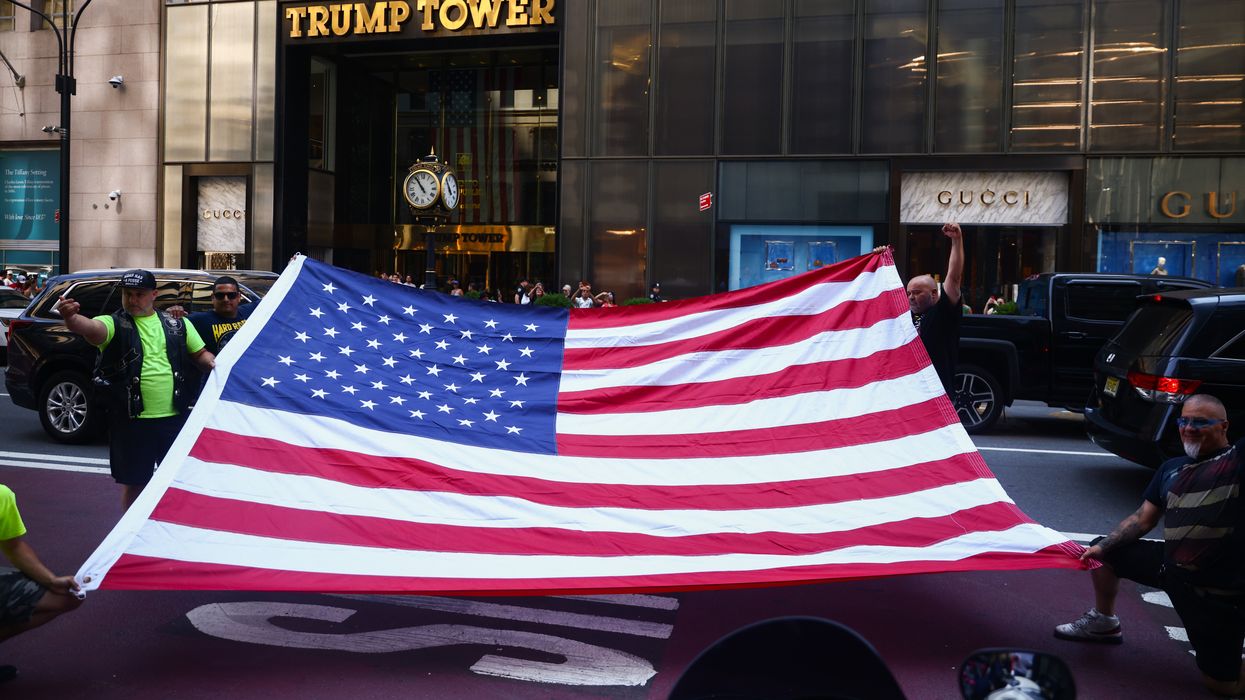By Sam Daley Harris
Daley-Harris is the author of “ Reclaiming Our Democracy: Every Citizen’s Guide to Transformational Advocacy ” and the founder of RESULTS and Civic Courage. This is part of a series focused on better understanding transformational advocacy: citizens awakening to their power.
The day before the attempted assassination of former President Donald Trump, a column in USA Today warned of our nation’s toxic brew of political polarization and gun violence. Titled “Ammo Vending Machines at Grocery Stores: Horrible Idea,” it began:
“News broke this week that American Rounds, which promotes itself with the line ‘Ammo Sales Like You've Never Seen Before,’ is operating vending machines that dispense ammunition at grocery stores in Alabama, Oklahoma and Texas. The company has plans to expand to Colorado, and other states are likely in their sights.
“It's a dangerous, irresponsible business practice in a country struggling to contain an epidemic of gun violence.”
Sadly, the column was a prescient warning to a nation familiar with the curse of political assassination. In 1969 I played drums in a musical revue at the University of Miami written and performed by students and faculty. The assassinations of the Rev. Martin Luther King Jr. and Sen. Robert F. Kennedy had just happened the year before. During one scene cast members moved two-foot-high letters around the stage to spell different words. The first phrase was “NATION AT SIN”; the cast did a “ta da” pose and the audience applauded in response. After the cast moved the letters around, added a few others and spelled “ASSASSINATION” and did another “ta da” pose, the audience went awkwardly silent. The song that followed asked, “How can I bring a child into this world, only to live in pain?”
Hours before Saturday’s assassination attempt, I joined thousands of others on a call to raise funds for the Democratic parties in Wisconsin, Michigan and Pennsylvania. Organized and led primarily by spiritual and mindfulness teachers, Tara Brach kicked it off by asking this question: “What is love asking of me now?” Jon Kabat-Zinn said we need a Democracy 2.0 and committed himself to “talking to people I don’t usually talk to.” Maurice Mitchell said he saw “government as a tool that can redistribute compassion.”
Whatever a Democracy 2.0 would look like, it probably wouldn’t include ammo vending machines in grocery stores. Clearly we need to be dispensing more love instead, redistributing more compassion, especially when it’s hard.
Jack Kornfield closed the call reading the poem “Everyday Grace" by Stella Nesanovich. I must admit, I cried as he finished it:
It can happen like that:
meeting at the market,
buying tires amid the smell
of rubber, the grating sound
of jack hammers and drills,
anywhere we share stories,
and grace flows between us.
The tire center waiting room
becomes a healing place
as one speaks of her husband's
heart valve replacement, bedsores
from complications. A man
speaks of multiple surgeries,
notes his false appearance
as strong and healthy.
I share my sister's death
from breast cancer, her
youngest only seven.
A woman rises, gives
her name, Mrs. Henry,
then takes my hand.
Suddenly an ordinary day
becomes holy ground.
Clearly, Democracy 2.0 would deliver more holy ground — and dispense more everyday grace.


















 A woman prepares to cast her vote on May 4, 2025 in Bucharest, Romania. The first round of voting begins in the re-run of Romania's presidential election after six months since the original ballot was cancelled due to evidence of Russian influence on the outcome. Then far-right candidate Calin Georgescu surged from less than 5% days before the vote to finish first on 23% despite declaring zero campaign spending. He was subsequently banned from standing in the re-rerun, replaced this time round by George Simion who claims to be a natural ally of Donald Trump.Getty Images, Andrei Pungovschi
A woman prepares to cast her vote on May 4, 2025 in Bucharest, Romania. The first round of voting begins in the re-run of Romania's presidential election after six months since the original ballot was cancelled due to evidence of Russian influence on the outcome. Then far-right candidate Calin Georgescu surged from less than 5% days before the vote to finish first on 23% despite declaring zero campaign spending. He was subsequently banned from standing in the re-rerun, replaced this time round by George Simion who claims to be a natural ally of Donald Trump.Getty Images, Andrei Pungovschi

Trump & Hegseth gave Mark Kelly a huge 2028 gift